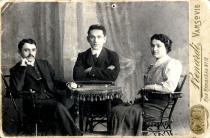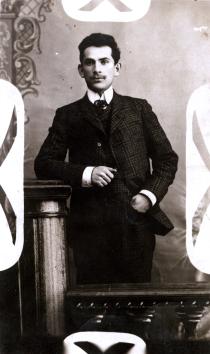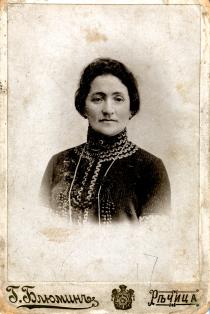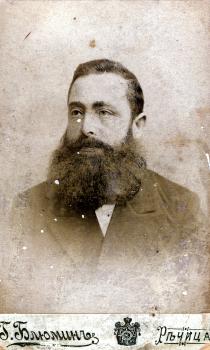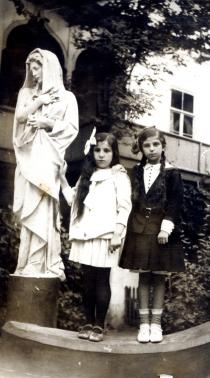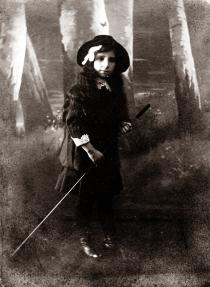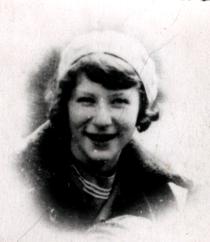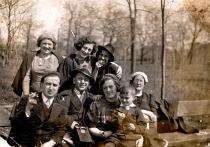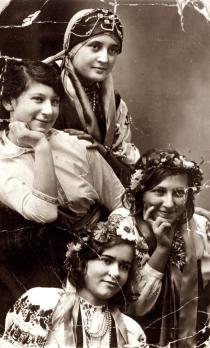This photo is of me, Emilia Kushnir (maiden name - Leibman). It was taken in Kiev, around 1932 or 1933.
I was born on December 16, 1924, in Kiev, at 3, Vladimirskaya Street, where I lived till the beginning of WW II.
My childhood was one typical of all Soviet children - kindergarten, school and war.
I went to school in 1931. It was a regular Russian school. It replaced our former Jewish school at 5, Vladimirskaya Street (one of the central streets of Kiev), near our house. Until 1935, there was a Jewish school next to us, then it was closed, and its director became director of our school for some time. I don't know why that school was closed. You see, we were all internationalists; we did not care who was Russian, Jewish or Ukrainian. Our school was mixed - boys and girls studied together. There were Jewish children in our class, but no one cared. There was, however, a Russian family in our house. People were forbidden to celebrate New Year's or decorate New Year trees (In the Soviet Union, people never celebrated Christmas, but rather New Year's on January 1, hence people had "New Year trees" instead of "Christmas trees"). I don't remember what year it was when Postyshev allowed people to celebrate the New Year. (Editor's note: Pavel Postyshev, 1887-1939, was a Soviet Communist Party activist). So, this family invited me to celebrate either New Year or Christmas with them. And the rest of our neighbors were surprised that they would invite me, a Jew.
I married in 1955. My husband, Boris Markovich Kushnir, is Jewish. He was born in 1924, in the village of Gaisin, in the Vinnitsa region. He fought during the war as a private, and the end of the war found him somewhere near Kenningsberg.
When the new political developments and wars started in Israel, my father got very interested in them. He took all Jewish problems very closely to heart. He subscribed to the Soviet Jewish journal and listened to all the "Voices" (radio stations that were forbidden in our country and whose radiocast was jammed); he wanted to know the truth. My father died in 1974.
For some time my husband and I were thinking of emigrating to Israel. We knew very little of Israel then and were afraid to quit everything here and find ourselves in a strange and unknown country. We thought we would never again be able to return here and see our near and dear, for everyone who left could not even keep up a correspondence with us because of our fear of the authorities. Such correspondence was always checked by the Security Service and it was dangerous; people could even be fired from work for it. We also understood that it would be hard for us to learn a new language and find a job. At that time those who were emigrating were held up to shame. Then we decided that since we were alone, with no children, we could stay here; and so we stayed.
Later, after my husband's death, I went to Israel. My cousin Franklin paid for my trip. I certainly took everything there as something dear and close. Everything was so interesting - the rich synagogues, the Torah scrolls, the mezuzahs. I was there on Passover. I heard the words I had forgotten long time ago, the words I knew in my childhood. Some things I recovered in my memory, others things were new to me.
In Israel I learned about all the traditions, about how to celebrate Passover, about prayers and Haggadah. Jewish life in Kiev is very different. It is wonderful that we have "Khesed," synagogues and Jewish youth organizations. I certainly don't want to pretend, because I am not religious and will never be, but I am still very interested in everything about Jewish life.

